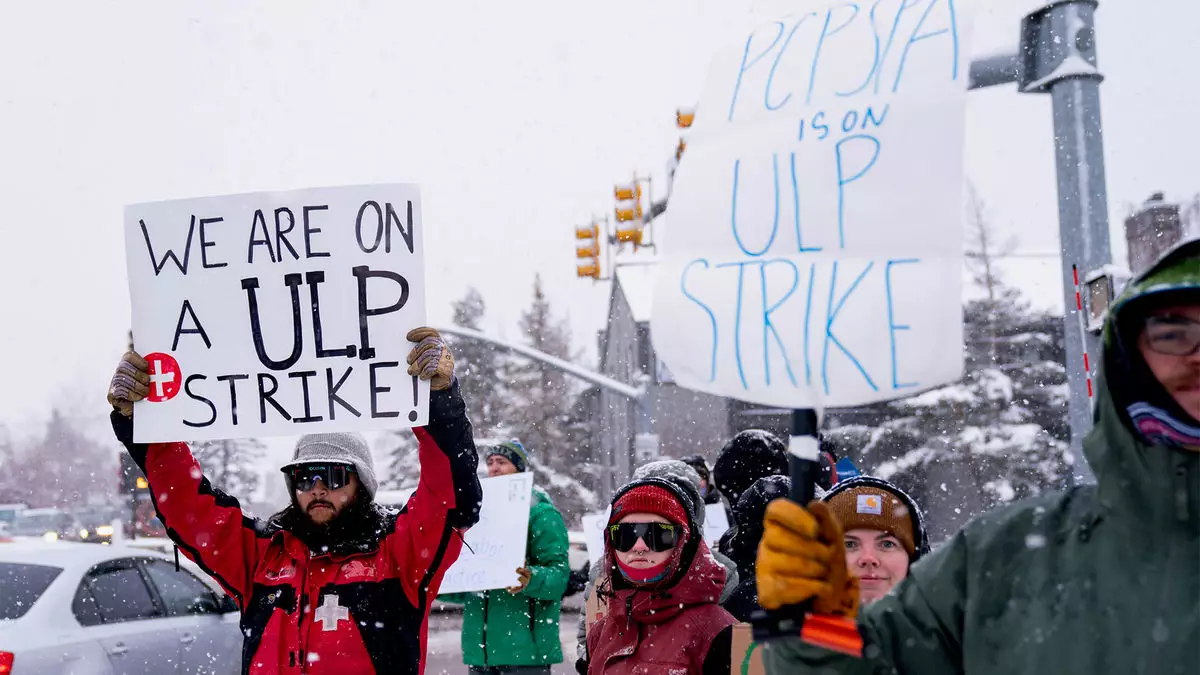The striking members of the Park City Professional Ski Patrol Association have entered their seventh day of action, drawing the attention of federal mediators in an effort to bridge the growing divide between the union and Vail Resorts. This situation reflects not only the serious implications surrounding labor relations within the ski industry but also highlights the profound challenges faced by employers in maintaining operational stability during peak season. As the ski patrol union battles for better working conditions and fair treatment, it serves as a reminder of the critical role that ski patrollers play in ensuring safety on the slopes.
Adding another layer of complexity to the ongoing strike is the adverse weather conditions plaguing the early ski season. With significantly below-average snowfall, Park City Mountain Resort has had to limit its open terrain, resulting in reduced capacity for skiers and snowboarders alike. The current operational status reports indicate that while 24 of 41 lifts are functioning, only a mere 75 of the 346 runs are available for skiing. This stark contrast to the nearby Deer Valley Resort, which boasts 21 of 24 lifts open and 73 of 121 runs, paints a grim picture for skiers who had hoped to enjoy their winter sports at Park City.
The dissatisfaction among ski enthusiasts has become evident through numerous social media complaints, showcasing long lift lines and limited access to trails at Park City Mountain. Such operational difficulties, exacerbated by the strike, have not only frustrated visitors but have also placed added pressure on Vail Resorts to find a resolution swiftly. The ski area’s Chief Operating Officer, Deirdra Walsh, has publicly acknowledged these challenges, emphasizing the importance of returning to a state where skiers can enjoy a relatively seamless experience on the mountains.
The Park City patrollers union has expressed deep concern regarding the safety implications stemming from the strike. Recent disclosures reveal that normally over 100 ski patrollers would be working, yet currently, only a fraction of that number is present. This absence raises significant questions regarding the overall safety atmosphere on the slopes, as the effectiveness of ski patrols significantly influences both the management of terrain and the welfare of guests. In a show of solidarity, unions from Vail Resorts-owned ski areas, including Crested Butte, Breckenridge, and Keystone, have come together, condemning the company’s tactics of compelling patrol leaders from other resorts to assist at Park City.
As negotiations continue, the urgency for a swift and amicable resolution has never been clearer. Both sides must navigate the challenges of labor relations with care, balancing the needs and expectations of ski patrollers while addressing the pressing concerns of the skiing public. The outcome of this situation will not only determine the immediate future of Park City Mountain Resort but could also set significant precedents for labor relations across the winter sports industry. The hope remains that both parties can arrive at a resolution that prioritizes safety, operational efficacy, and fair labor practices, ultimately allowing the mountain to operate at full capacity again.


Leave a Reply